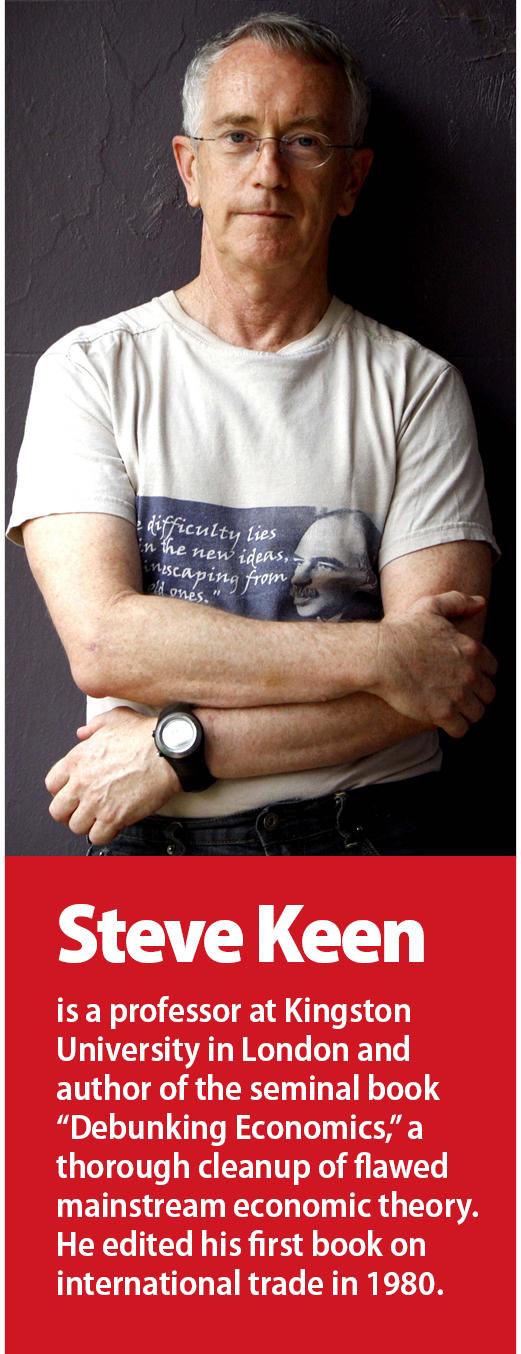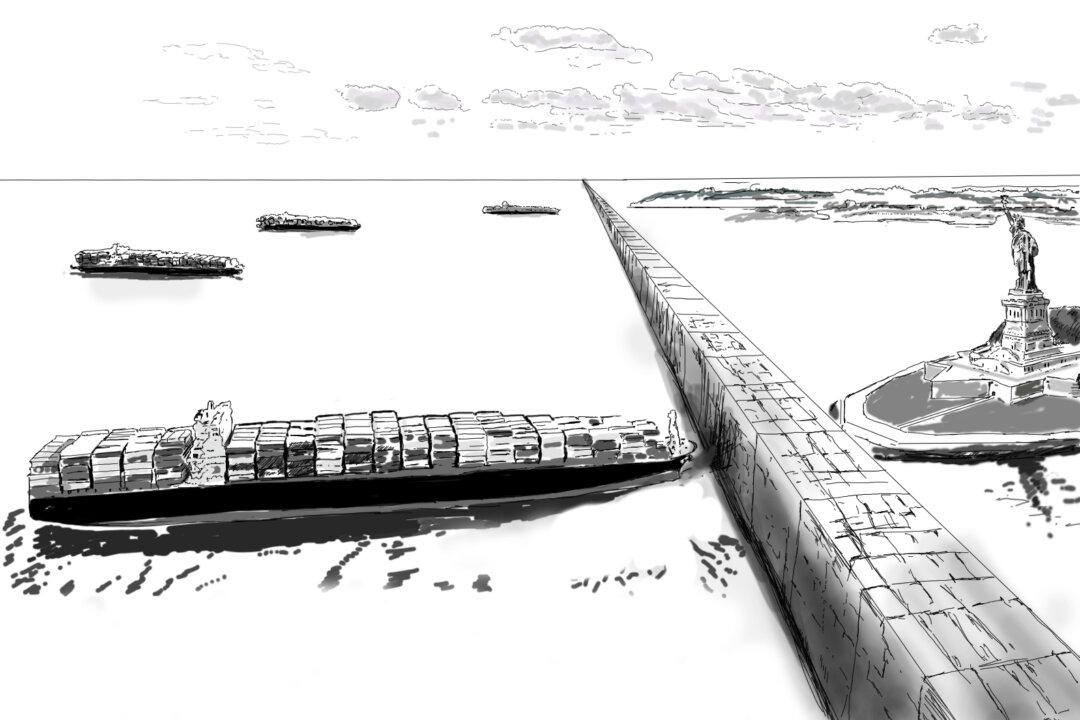According to conventional economic theory, free trade is a winner for developing and developed countries alike. That’s how globalists sold Americans on NAFTA and China’s ascension to the World Trade Organization (WTO), but that’s not how it played out.
Millions of lost manufacturing jobs later, frustrated American workers from the rust-belt states like Wisconsin, Ohio, and Michigan voted for Donald Trump, the first candidate in decades to oppose the free trade doctrine.
But why doesn’t free trade work? And what can a President Trump do to reverse the near complete offshoring of American manufacturing?
Mainstream economics cannot answer these questions. That’s why Epoch Times spoke to Steve Keen, author of “Debunking Economics” and lecturer at London’s Kingston University who was able to offer both an explanation and insights on how Trump could revive American manufacturing.
Epoch Times: Why doesn’t free trade work as advertised?
Steve Keen: The starting point of the conventional theory is that you can increase efficiency by specializing. For example, China is absolutely better at producing two things like steel and textiles than the United States, but its competitive advantage is relatively higher in steel production than textiles.
So according to conventional theory, the United States should produce more textiles and China should produce more steel. This causes a relative increase in efficiency and both countries would produce more of both than if there wasn’t free trade.
They will admit there will be winners and losers, the steel industry in the United States will suffer whereas the textile industry will gain. The theory is that the winners compensate for the losers and there is more for everyone.






